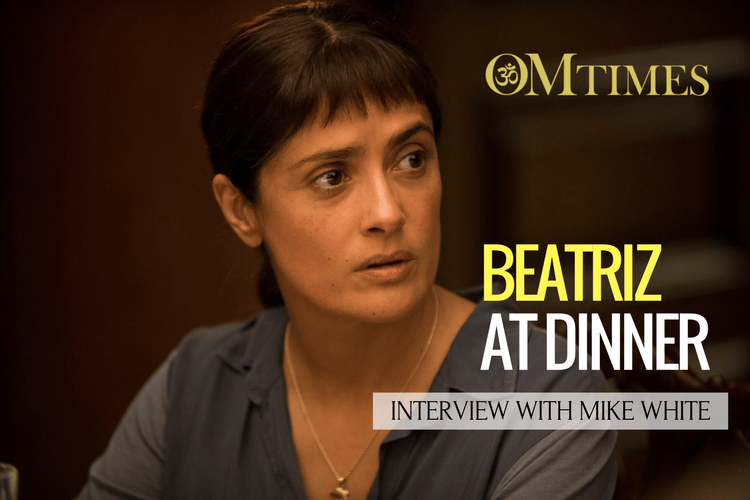Beatriz at Dinner

Christopher Buck: It is interesting. I know John Lithgow, in real life, is certainly not like his character. I mean, he does things like work with a foundation to save the manatees, and I know I’d like to have crawled into his head. It’s like when he read this script, my God, how do I do this?
Mike White: Well, he would say, it’s like even if he’s, perceived as the villain of the piece, the character himself doesn’t see themselves as a villain. So, he did a great job of finding, the charm and also the–I guess that the arguments that his character lays out have integrity to them; that he does have a point of view that’s valid. But, I think he did a great job making it feel like the character really believed what he felt and that he, he felt like what he was his point of view on all of these topics were justified, and it wasn’t just a cynical philosophy.
Christopher Buck: Yeah, I thought so, just as I thought Salma Hayek really seemed to resonate with her character and made her perspective and her beliefs really come across strongly as being true. It was a fascinating movie.
Mike White: What I liked about it is that both Beatriz and John are real philosophers. And they live their lives based on their philosophies, which I always think are interesting characters to write, you know?
The other characters in the movie you feel like, like Connie Britton’s character, like, she kind of said certain things. She wants to be one kind of person, but she really isn’t that person, you know? And I think the other characters at the dinner party, too, are kind of–they want to see themselves as this kind of noble people. But then they also have to live in a reality of what they, that’s where power lies and all of that. And so, I think it’s interesting–I think, that’s what’s likable about Lithgow’s character is that he really lives his philosophy.
Christopher Buck: I thought it was interesting the fact that Beatriz, the name Beatriz from the Latin root is, it means “one that brings happiness.”
Mike White: I was trying to come up with a name that, would reflect that she is somebody who is really about putting others first and that her whole essence was about, healing the suffering of others. How people who live that life and also live it to a particular extreme, how there really is, in my experience, a kind of battle fatigue and feeling like there’s just no end to that amount of suffering in the world.
Christopher Buck: I saw that with Beatriz and her character. She dealt with a lot of terminal illnesses and cancer, and the like. And I thought about how that sort of thing would wear you down making it harder for her to heal herself and continue on, and that’s why she wasn’t able to.
Mike White: I’m appreciative that this movie’s coming out now. And it was a positive experience. It’s an interesting thing because I feel like it’s gotten a lot of buzzes, and people are talking about the movie, and it was a tough movie to find financing for. And so, I find it amusing that it seems to be resonating with people.
Christopher Buck: Well, I’m glad you were able to make that climb and make this movie. I thoroughly enjoyed it. And, moreover, it was one of those movies that you–it’s not just a question of enjoyment, good, I feel good, everything’s nice, fluffy. It’s like you think about it afterward. And it sticks with you, and you have to chew on it for a bit. And there are few movies like that, and I’m grateful that you made this one.
Mike White: Well, thank you so much.
Christopher Buck: Mike, thank you for the opportunity to interview you and get your thoughts on the movie.
More information about the Movie Beatriz At Dinner
Christopher Buck is the co-founder of Humanity Healing in 2007, which rippled out into the 501c3 public charity, Humanity Healing International, and its subsidiary, OMTimes Media. He is the CEO of both companies. In addition, Christopher serves as the Chairman of the Board of the Saint Lazarus Relief Fund, the 501c3 public charity for the Hospitaller Order of Saint Lazarus of Jerusalem. Christopher had the honor of being Knighted in Malta in 2014.




